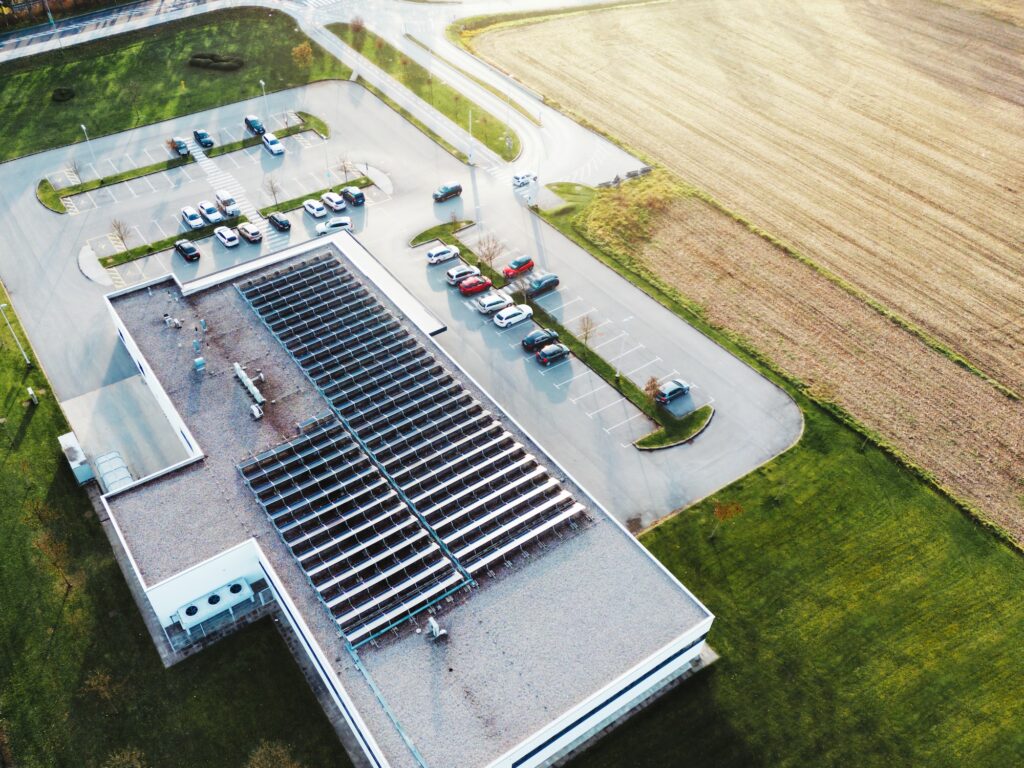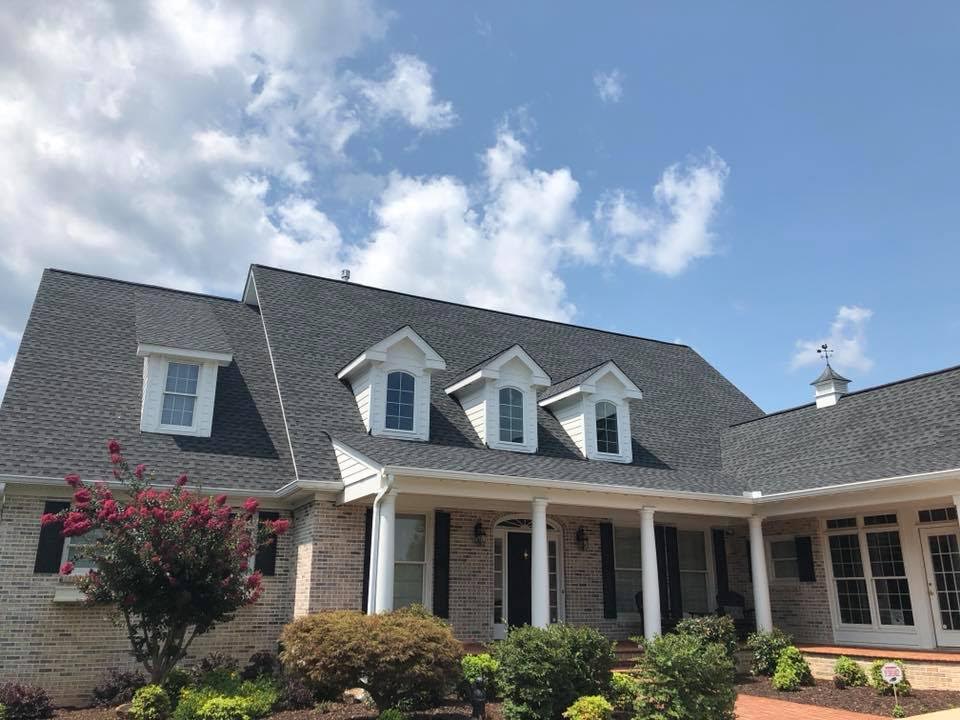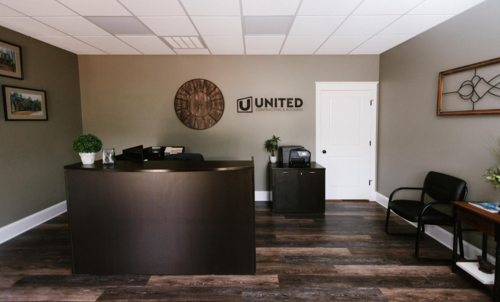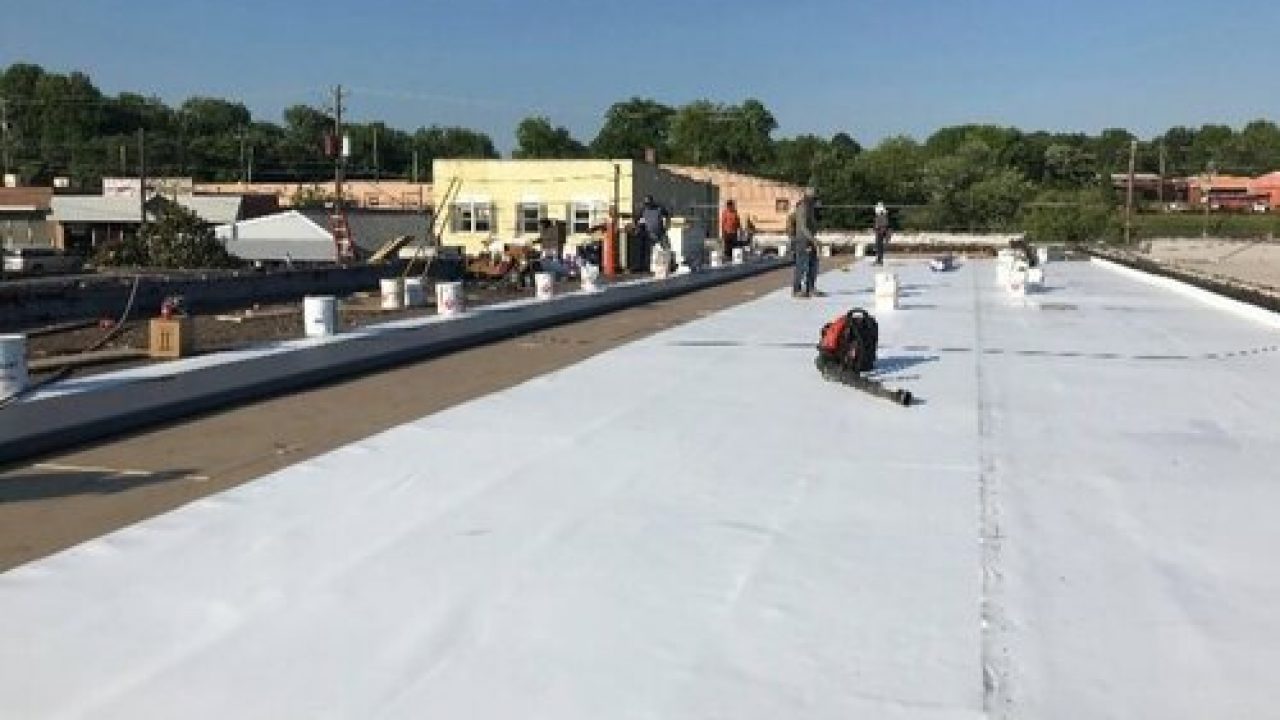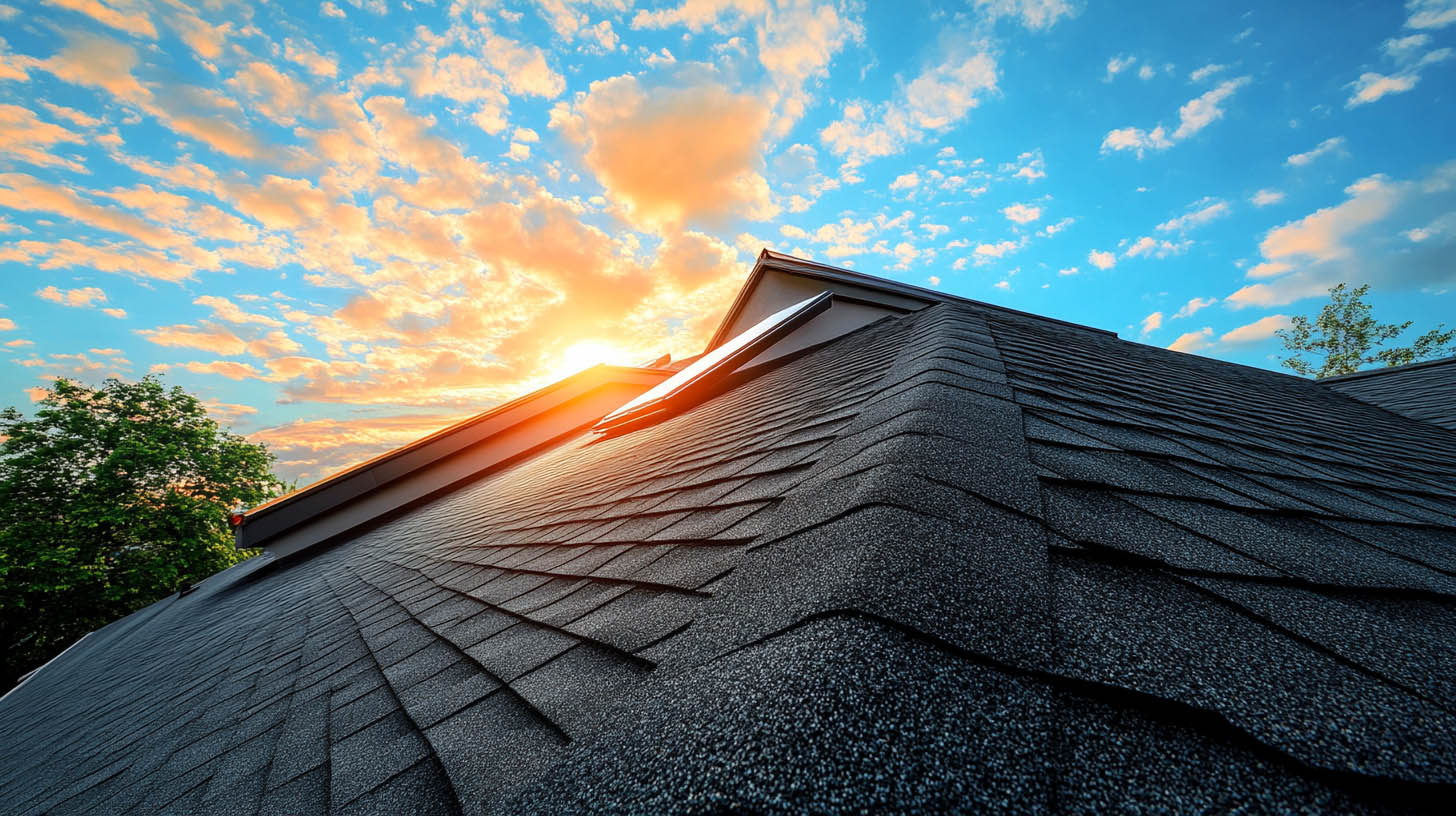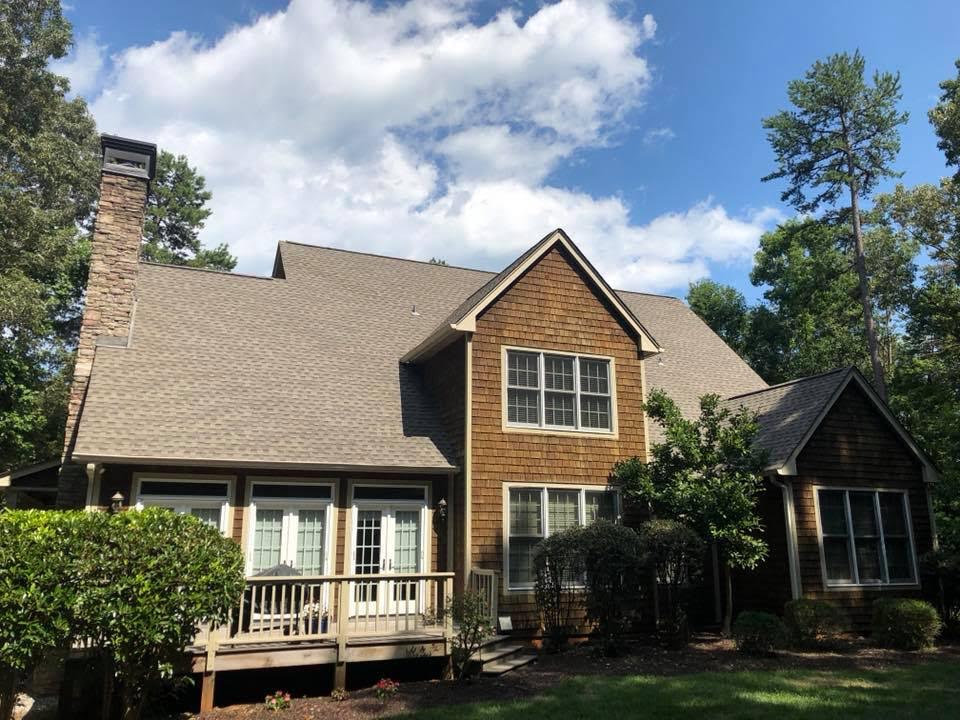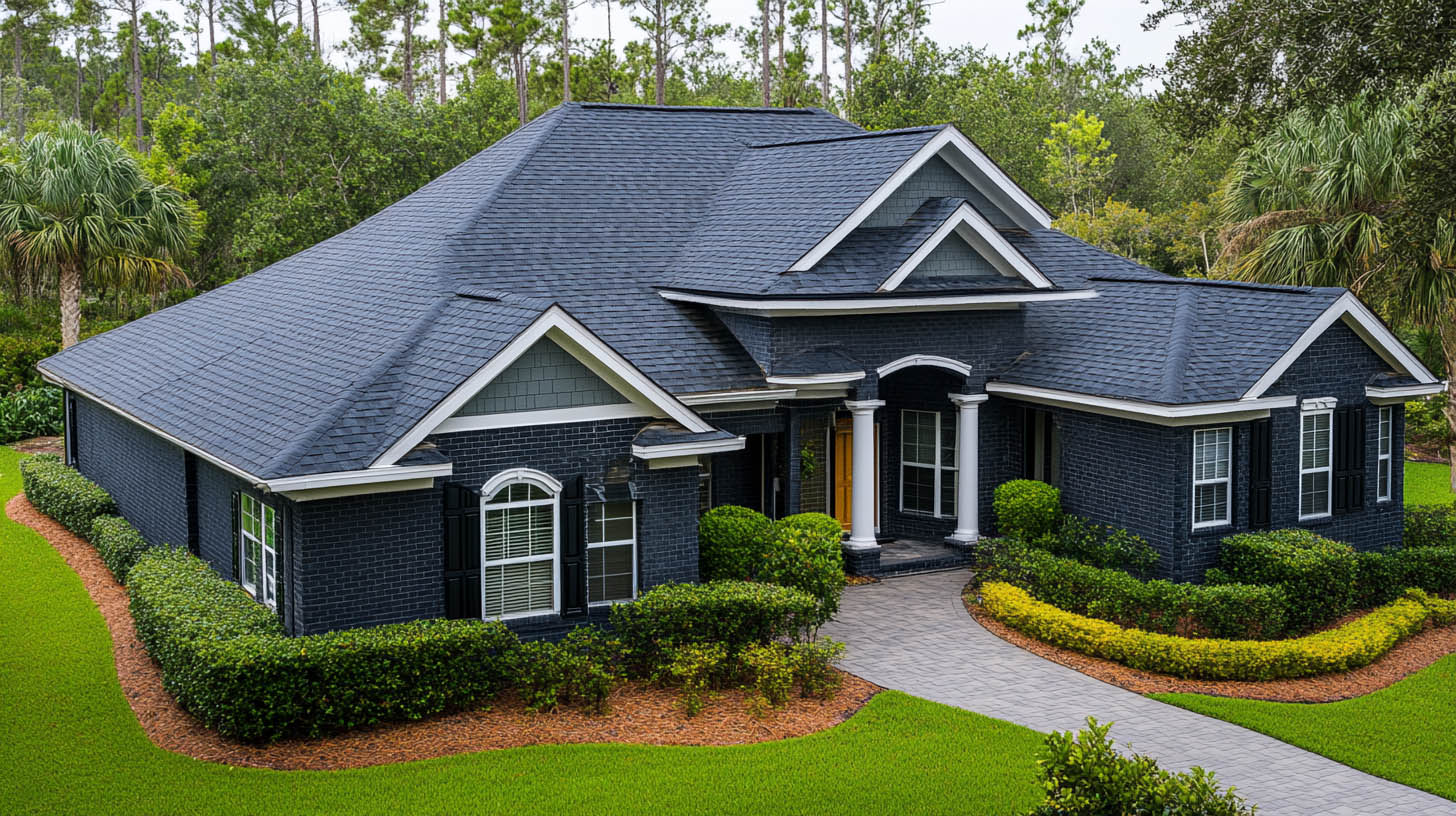Welcome to the new blog on TPO Roofing System by United Contracting & Roofing!
Our article explores the key factors that set TPO apart from PVC roofing. We explore the advantages of TPO roofing and the drawbacks of PVC, compare durability and costs, and address environmental considerations. Join us as we break down these crucial differences to help you make the best roofing choice for your needs.
Key Takeaways
- TPO is cost-effective compared to PVC and requires less maintenance and repair.
- TPO has superior durability and longevity, with better UV radiation and heat resistance.
- TPO is more environmentally friendly than PVC, being recyclable and chlorine-free.
- The decision between TPO and PVC roofing depends on upfront cost, durability, and environmental impact.
Advantages of TPO Roofing
When considering roofing options, we find that TPO roofing offers significant advantages over PVC roofing due to its durability and cost-effectiveness. TPO, or Thermoplastic Polyolefin, is popular for commercial and industrial buildings. One of the key benefits of TPO roofing is its cost-effectiveness. TPO is more budget-friendly than PVC roofing, making it an attractive option for those looking to save on installation and material costs.
Additionally, TPO roofing is known for its durability. It can withstand extreme weather conditions, including high winds, heavy rain, and hail. This durability translates to long-term cost savings as TPO roofs require less maintenance and repair than other roofing systems.
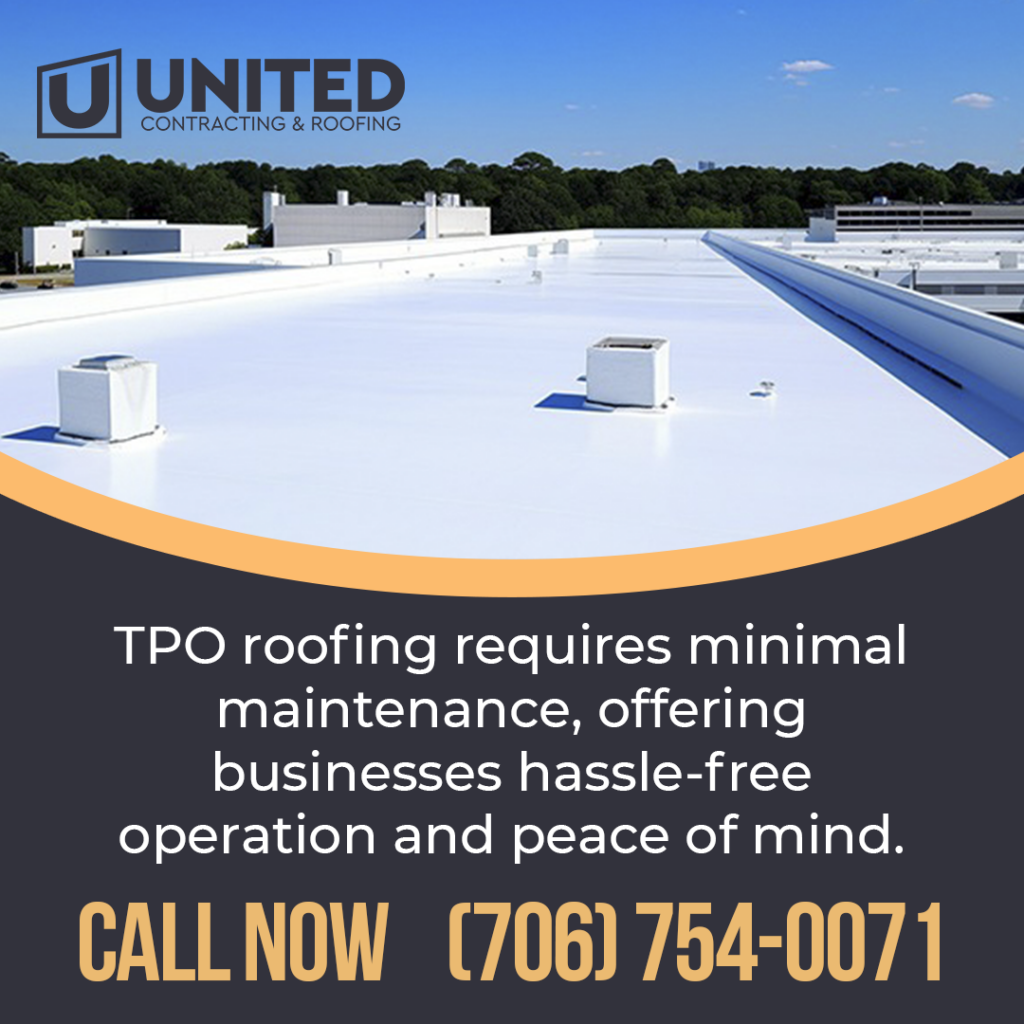
Regarding installation, TPO roofing is relatively easy and quick to install. Many roofing companies offer TPO installation services, ensuring a smooth and efficient process from start to finish. The TPO roof system consists of single-ply roofing membranes that are heat-welded together, creating a seamless barrier against the elements. This seamless design enhances the roof’s durability, performance, and longevity. Overall, TPO roofing is a superior choice due to its cost-effectiveness, durability, easy installation, and the availability of skilled roofing companies specializing in TPO installation.
Disadvantages of PVC Roofing
Transitioning from our exploration of the advantages of TPO roofing, we now uncover the drawbacks of PVC roofing. While PVC roofing has its merits, it also has some notable disadvantages compared to the TPO roofing system.
One major concern with PVC roofing is its lack of flexibility in extreme temperatures. In cold weather, PVC can become brittle, leading to cracks and structural issues over time. This rigidity can make PVC more prone to damage from impacts like hail or fallen branches, especially compared to the more flexible TPO roofing system.
Additionally, PVC roofing is known to be less environmentally friendly than TPO. The manufacturing process of PVC involves using chlorine and other chemicals that can harm the environment. On the other hand, TPO is considered a more eco-friendly option due to its recyclability and energy efficiency.
Another drawback of PVC roofing is its susceptibility to punctures and tears. Although PVC membranes are less susceptible to punctures than TPO membranes, they are more vulnerable to leaks and water damage.
Durability and Longevity Comparison
Durability and longevity are paramount considerations when evaluating roofing materials for commercial applications. In comparing TPO (Thermoplastic Olefin) and PVC (Polyvinyl Chloride) roofing systems, it’s essential to delve deeper into their specific attributes and performance characteristics.
Resistance to Weathering: TPO roofing systems are renowned for their exceptional resistance to UV radiation and heat, outperforming PVC membranes in areas with high sun exposure. This superior weathering resistance ensures that TPO roofs maintain their structural integrity and aesthetic appeal over an extended period.
Flexibility and Movement: TPO membranes exhibit greater flexibility and elasticity than PVC, allowing them to accommodate building movement without compromising their integrity. This inherent flexibility minimizes the risk of cracking or splitting, making TPO roofing systems more durable and resilient, particularly in regions prone to temperature fluctuations and structural shifts.
Seam Strength: The seams of TPO roofing systems are typically more robust than those of PVC membranes. This enhanced seam strength reduces the likelihood of leaks and water infiltration, enhancing TPO roofs’ overall performance and longevity. Strong seams are essential for ensuring the watertight integrity of the roofing system and protecting the underlying structure from moisture damage.
Maintenance Requirements: TPO roofing systems generally require less maintenance over their lifespan than PVC membranes. Their superior resistance to weathering and strong seam integrity translate to fewer repair needs and lower upkeep costs over time. With minimal maintenance requirements, TPO roofs offer building owners a cost-effective and hassle-free solution for long-term roof performance.
When prioritizing durability and longevity in commercial roofing systems, TPO is preferred over PVC. Its superior weathering resistance, flexibility, seam strength, and lower maintenance requirements make it an ideal option for building owners seeking a reliable, cost-effective roofing solution. By opting for a TPO roofing system, businesses can ensure that their properties are well-protected against the elements and enjoy peace of mind, knowing that their investment is built to last.
Cost Comparison: TPO Roofing Cost Vs. PVC Cost
When analyzing the cost disparities between TPO and PVC roofing systems, it’s essential to examine their financial implications and long-term benefits more deeply. TPO roofing generally boasts a lower upfront cost than PVC, making it an attractive option for those seeking a budget-friendly roofing solution. This affordability factor makes TPO an accessible choice for property owners looking to install a new roofing system without exceeding their financial constraints. Furthermore, the ease of installation associated with TPO can lead to reduced labor costs, further enhancing its cost-effectiveness and appeal to budget-conscious consumers.
Conversely, PVC roofing systems typically entail a higher initial investment than TPO. The elevated price point of PVC is primarily attributed to its chemical composition and intricate manufacturing process, which contribute to the overall cost of the material. However, it’s important to recognize that PVC offers exceptional durability and longevity, potentially offsetting the initial expenditure over time. Because of their robust construction, PVC roofs require minimal maintenance and repair, translating into long-term savings and cost-effectiveness for property owners.
When evaluating the cost dynamics of TPO versus PVC roofing, it’s imperative to balance the upfront expenses with the anticipated long-term benefits. While TPO may present a more affordable option at the outset, the superior durability and extended lifespan of PVC could render it a more cost-effective choice in the grand scheme of things. Ultimately, the decision between TPO and PVC roofing systems hinges on various factors, including budgetary considerations, specific roofing requirements, and long-term financial objectives. By carefully weighing these factors, property owners can make an informed decision that aligns with their financial resources and operational needs. Whether opting for TPO or PVC, investing in a high-quality roofing system is essential for safeguarding commercial properties’ structural integrity and longevity.
Environmental Impact and Sustainability
Let’s examine the environmental implications of choosing between TPO and PVC roofing systems, exploring how each option can contribute to sustainability and minimize carbon footprint. When assessing the environmental impact of these roofing materials, several critical factors come into play:
Recyclability: TPO roofing stands out for its recyclability at the end of its lifespan, making it more environmentally sustainable than PVC. TPO membranes can be recycled into new products, reducing waste and conserving valuable resources. In contrast, PVC is harder to recycle due to its chemical composition and may contribute to landfill accumulation, posing disposal and waste management challenges.
Energy Efficiency: TPO roofing typically boasts higher energy efficiency ratings than PVC roofs, thanks to its reflective properties and ability to minimize heat absorption. By reflecting solar radiation and reducing heat transfer into the building, TPO roofs help lower indoor temperatures and reduce reliance on air conditioning systems. This reduces energy consumption and lowers carbon emissions, making TPO roofing more eco-friendly for environmentally conscious property owners.
Chemical Composition: PVC roofing contains chlorine, a chemical compound that can have adverse environmental impacts during production and disposal. The manufacturing process of PVC involves the release of harmful pollutants and greenhouse gases, contributing to air and water pollution. Additionally, PVC may emit toxic substances when exposed to heat or fire, posing risks to human health and the environment. In contrast, TPO is chlorine-free and poses fewer environmental risks, making it a safer and more sustainable option for roofing applications.
Longevity and Durability: TPO roofing is renowned for its durability and longevity, outperforming PVC roofs in terms of lifespan and resilience. TPO membranes are highly resistant to weathering, UV radiation, and chemical exposure, ensuring long-term performance and minimal maintenance requirements. With proper installation and maintenance, TPO roofs can last for decades, reducing the need for frequent replacements and minimizing the environmental footprint associated with roofing materials. This extended lifespan of TPO roofs translates into fewer resources consumed, less waste generated, and lower environmental impact over time.
In short, choosing TPO and PVC roofing systems can significantly impact environmental sustainability and carbon footprint reduction. TPO roof system is more environmentally friendly, offering recyclability, energy efficiency, chemical composition, and longevity advantages. By prioritizing TPO installation for commercial roofing projects, property owners can contribute to sustainability efforts, minimize environmental impact, and create healthier, greener built environments for future generations.

Frequently Asked Questions
Can TPO Roofing Be Installed Over Existing PVC Roofing Materials?
At United Contracting & Roofing, we prioritize efficiency and cost-effectiveness in all our roofing solutions. It’s worth noting that TPO roofing can typically be installed over existing PVC roofing materials. This process offers significant advantages by saving time and money and eliminating the need to remove the PVC membrane. However, it’s crucial to emphasize that proper surface preparation is essential for a successful installation.
Before proceeding with the TPO installation, it’s imperative to ensure that the existing PVC roofing is in good condition and suitable for the overlay. Our experienced team at United Contracting & Roofing is equipped with the knowledge and expertise to thoroughly assess the condition of the PVC membrane and determine its compatibility with TPO roofing. Through meticulous inspection and preparation, we ensure that your new TPO roof will provide optimal performance and longevity.
As one of the leading TPO roofing companies, we understand the intricacies of this process and are committed to delivering superior results. By entrusting your project to United Contracting & Roofing, you can rest assured that you’ll receive high-quality craftsmanship and exceptional service from start to finish. Contact us today to learn more about our TPO roofing solutions and how we can effectively meet your roofing needs.
Are There Any Specific Building Codes or Regulations That Favor TPO Over PVC Roofing?
At United Contracting & Roofing, we specialize in providing cutting-edge roofing solutions tailored to meet the unique needs of our clients. When selecting the right roofing material, it’s essential to consider performance and compliance with building codes and regulations. In this regard, TPO roofing stands out as a highly favorable option.
TPO roofing offers numerous advantages over PVC roofing, making it a preferred choice for many building projects. TPO excels in energy efficiency, and its ease of installation and overall durability make it an attractive option for residential and commercial applications. Moreover, many building codes now mandate using cool roofing materials like TPO to meet stringent energy efficiency standards.
One of the key benefits of TPO roofing is its reflective properties, which help reduce the urban heat island effect. This makes TPO an ideal choice for environmentally conscious construction projects, aligning perfectly with our commitment to sustainable building practices at United Contracting & Roofing.
As one of the leading TPO roofing companies in Atlanta, GA, we are dedicated to providing our clients with top-of-the-line roofing solutions that meet and exceed industry standards. Whether you’re looking to upgrade your existing roof or embark on a new construction project, our team of skilled professionals ensures that your roofing needs are met with precision and expertise. Contact United Contracting & Roofing today to learn how TPO roofing can benefit your property.
How Do TPO and PVC Roofing Materials Differ in Flexibility and Resistance to Extreme Weather Conditions?
At United Contracting & Roofing, we understand the importance of choosing the right roofing material to withstand the challenges of varying weather conditions. When comparing TPO and PVC roofing materials, it’s essential to recognize their flexibility and resistance to extreme weather differences.
TPO roofing, one of our specialties as a leading TPO roofing company, offers exceptional flexibility, making it well-suited to handle a wide range of weather conditions. Its flexibility allows it to expand and contract with temperature changes, minimizing the risk of damage from thermal cycling and ensuring long-term performance.
Conversely, PVC roofing tends to be more rigid but boasts excellent resistance to extreme weather conditions. This durability makes PVC roofing a preferred choice for areas prone to harsh climates or frequent exposure to severe weather events.
At United Contracting & Roofing, we prioritize providing our clients with comprehensive roofing solutions tailored to their needs and environmental considerations. Whether you’re facing fluctuating temperatures or harsh weather conditions, our team is equipped with the expertise to guide you in selecting the ideal roofing material for your project.
Contact United Contracting & Roofing today to explore our range of roofing options and discover how we can help you achieve a durable and resilient roof that stands the test of time.
Is There a Difference in the Maintenance Requirements for TPO and PVC Roofing Systems?
Regarding maintenance, the disparities between TPO and PVC roofing systems are worth noting. At United Contracting & Roofing, we’ve observed that TPO roofs typically demand less upkeep than their PVC counterparts. Our experience has shown that TPO roofs are inherently easier to maintain due to their resistance to dirt and debris buildup.
Unlike PVC roofs, which may require more frequent cleaning to combat issues such as algae growth, TPO roofing remains resilient against environmental elements, requiring minimal intervention to keep them in optimal condition. This reduced maintenance requirement makes TPO attractive for property owners seeking hassle-free roofing solutions.
As one of the premier TPO roofing companies, United Contracting & Roofing is committed to providing our clients with roofing systems that deliver exceptional performance and minimize the need for ongoing maintenance. With TPO roofing, you can enjoy peace of mind knowing that your roof will remain pristine and functional with minimal effort.
If you’re searching for a low-maintenance roofing solution that offers long-term durability and reliability, look no further than TPO roofing from United Contracting & Roofing. Contact us today to learn how we can help you achieve a worry-free roofing experience.
Are There Any Notable Differences in the Installation Process for TPO Versus PVC Roofing Materials?
At United Contracting & Roofing, we recognize the importance of understanding the nuances of roofing materials to make informed decisions. When comparing TPO and PVC roofing systems, it’s crucial to note the differences in the installation process.
TPO roofing, one of our specialties as a leading TPO roofing company, typically requires heat welding for seams during installation. This method ensures a strong and watertight seal, contributing to the roof’s durability and longevity.
On the other hand, PVC roofing offers more versatility in installation methods, including adhesive bonding or heat welding. While PVC provides flexibility in installation, it’s essential to consider the specific requirements of your project and the expertise of your roofing contractor.
Moreover, TPO’s inherent flexibility during installation makes it easier to work with in various situations, providing added convenience and efficiency for roofing projects of all sizes.
By understanding these distinctions between TPO and PVC roofing systems, our clients can make informed decisions that align with their project requirements and goals. At United Contracting & Roofing, we are dedicated to providing expert guidance and superior craftsmanship to ensure the success of every roofing project.
If you’re considering TPO roofing for your property, trust United Contracting & Roofing to deliver exceptional results tailored to your needs. Contact us today to learn more about our TPO roofing solutions and how we can help you achieve a reliable and durable roofing system.
Conclusion
In summary, when faced with the decision between TPO and PVC roofing systems, TPO roofing shines in terms of its numerous advantages, including durability, cost-effectiveness, and environmental impact. At United Contracting & Roofing, the trusted roof restoration company in Atlanta, GA, we firmly believe that TPO roofing surpasses PVC in delivering superior performance and long-term benefits.
As one of the leading TPO roofing companies, we’ve witnessed firsthand the unmatched durability and cost-effectiveness of TPO roofing solutions. Its ability to withstand harsh weather conditions and its eco-friendly properties make TPO the choice for property owners seeking a sustainable and reliable roofing solution.
By opting for TPO roofing from United Contracting & Roofing, you’re investing in a high-quality roofing system and contributing to a greener future. Make the smart choice for your next roofing project and choose TPO roofing for unmatched durability, cost-effectiveness, and environmental sustainability.
Contact United Contracting & Roofing today at (706) 754-0071 to learn more about our TPO roofing solutions and how we can elevate your property with a superior roofing system that stands the test of time.

